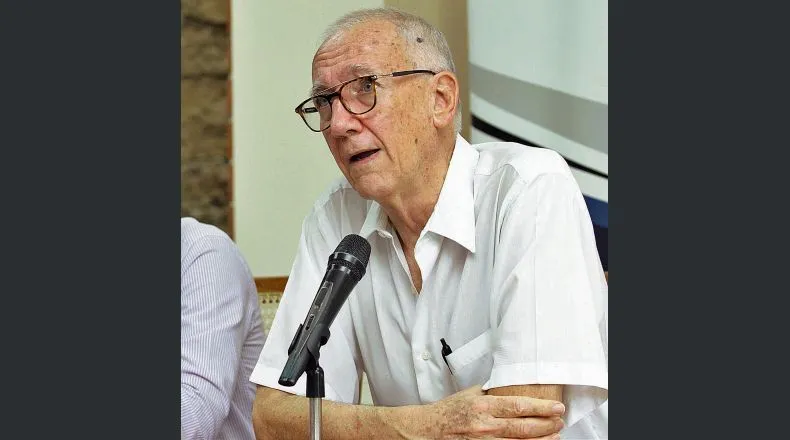In this statement, Tojeira calls Mr. López Jerez “the imposed president”, due to the way he was appointed by the Legislative after unconstitutionally removing the five members of the Constitutional Chamber, including its president who also presided the full Court.
Mr. López Jerez had criticized the rector of the UCA and the director of its Human Rights Institute for having, according to him, proposed pardon for Coronel Guillermo Benavides, who is condemned for the murder of the Jesuits and two of their employees committed in November 1989.
Mr. López Jerez interpreted that this request proved that the UCA was not interested in reopening the Jesuits case. The Constitutional Chamber presided by Mr. López Jerez recently overrule a previous sentence by the Criminal Chamber of the Supreme Court that had closed the prosecution of the Jesuit case.
Father Tojeira pointed out in his statement published by the university that the Jesuits had never requested a pardon for Coronel Benavides, but the commutation of his 12-year prison sentence, for humanitarian reasons and in accordance with the internationally accepted principles of restorative justice. Pardon and commutation of the sentences are two very different judicial instruments the president of a Supreme Court should understand, noted father Tojeira.
The Jesuits and the UCA requested that the prison sentence Coronel Benavides is serving be commuted, so that he could be liberated and receive medical treatment, after already having served 5 years.
Father Tojeira instructed the president of the Supreme Court that UCA and the Jesuits have worked for 32 years to establish the truth about the massacre in the UCA campus. The fact that finally they “accepted a claim of unconstitutionality against a corrupt sentence issued by judges of the Criminal Chamber, who are friends of the ‘imposed’ president of the Court, is nothing glorious that allows him to give lectures about justice. It was just their fundamental obligation.”
Padre Tojeira contradice al presidente ‘impuesto’ de la Corte Suprema respecto al caso Jesuitas
Padre Tojeira contradice al presidente ‘impuesto’ de la Corte Suprema respecto al caso Jesuitas
En su declaración, Tojeira llama a López Jerez “presidente impuesto”, debida a la manera como fue nombrado en este cargo por la Asamblea Legislativa, luego de que habían removido inconstitucionalmente a los 5 magistrados de la Sala de lo Constitucional, incluyendo su presidente que a la vez preside la Corte Plena.
López Jerez ha criticado al rector de la UCA y al director del Instituto de DDHH por haber solicitado, según él, un indulto para coronel Guillermo Benavides, quien sirve una pena de 12 años de prisión por el asesinato de los padres jesuitas y sus dos empleadas, cometido en noviembre 1989.
López Jerez interpretó que esta solicitud comprobaba que la UCA no estaba interesada en la reapertura del caso. La Sala de lo Constitucional, presidida por López Jerez, recientemente suspendió una previa sentencia de la Cámara de lo Penal que declaró cerrado el caso Jesuitas.
Padre Tojeira señaló en su pronunciamiento publicado por la universidad que la UCA y los Jesuitas nunca solicitaron un indulto para Benavides, sino la conmutación de su pena de 12 años, por razones humanitarias y en concordancia con los principios de justicia restaurativa internacionalmente aceptados. Indulto y conmutación son dos instrumentos jurídicos muy diferentes, que el presidente de una Corte Suprema no debería confundir, notó el padre.
Los Jesuitas y la UCA solicitaron que la pena de Benavides fuera conmutada para que el coronel pudiera ser liberado y recibir atención médica, luego de 5 años ya servidos.
El padre Tojeira aleccionó al presidente de la Corte que la UCA ha trabajado por 32 años para establecer la verdad sobre la masacre cometida en la UCA. El hecho que “ahora han aceptado una demanda de inconstitucionalidad contra una sentencia corrupta dada por jueces de la Sala de lo Penal amigos del actual Presidente impuesto, no es ninguna gloria para querer dar lecciones de justicia. Era simplemente una obligación elemental.”

